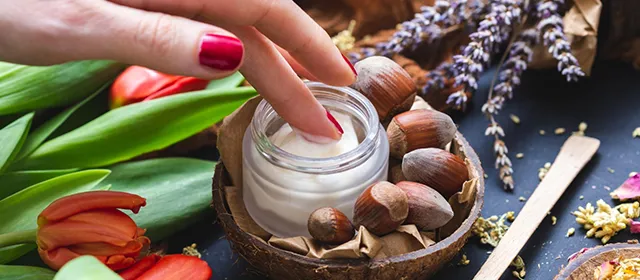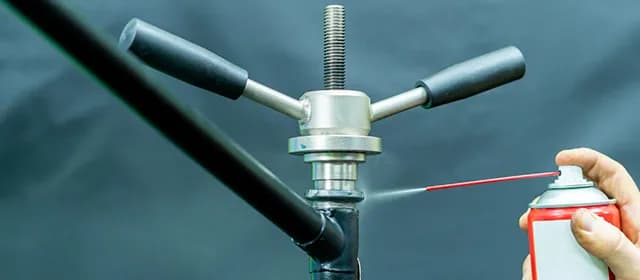Cruelty-free cosmetics are gaining traction as consumers increasingly prioritize ethical, sustainable, and animal-friendly products in their beauty routines. These cosmetics are developed without animal testing, aligning with rising awareness around animal welfare and clean beauty standards.
The cruelty-free cosmetics market is expanding due to shifting consumer preferences, stricter regulations against animal testing, and growing demand for transparent, vegan-friendly formulations. Brands are responding with innovative, plant-based ingredients and certifications that appeal to conscious buyers.
Advancements in alternative testing methods, along with social media-driven awareness, are further fueling market growth. As ethical consumption becomes mainstream, cruelty-free cosmetics are set to occupy a larger share of the global beauty industry. According to Kings Research, the global cruelty-free cosmetics market will reach USD 23.64 billion by 2031.
Top 10 Companies in the Cruelty-Free Cosmetics Market
1. Too. Faced Cosmetics, LLC.
Too Faced operates as a cruelty-free cosmetics brand under the umbrella of Estée Lauder Companies. It provides a range of makeup products including foundations, primers, and mascaras such as the Better Than Sex Mascara and Born This Way Foundation. Too Faced holds cruelty-free certifications and does not test on animals or sell in regions that mandate animal testing. The brand’s presence is well-established in the U.S., the U.K., and selected Asia-Pacific countries, contributing to the global footprint of the cruelty-free cosmetics market.
In June 2024, Too Faced expanded its U.S. presence by launching its product portfolio on Amazon's Premium Beauty Store. This move enhances Too Faced's accessibility to a broader online customer base and allows the brand to capitalize on the growing e-commerce beauty industry.
2. MILANI COSMETICS
Milani Cosmetics offers cruelty-free color cosmetics, with key products like Baked Blush, Conceal + Perfect Foundation, and Highly Rated Mascara. It does not test its products or ingredients on animals and is certified by both PETA and Leaping Bunny. Milani caters to a diverse consumer base with products designed for a wide range of skin tones. Based in the U.S., the company distributes across North America and is expanding into international markets, aligning with the growth trajectory of the cruelty-free cosmetics market.
3. The Body Shop International Limited
The Body Shop has a long-standing commitment to cruelty-free formulations. Its product range includes skincare, body care, and makeup, featuring items such as Tea Tree Oil, Vitamin E Moisturizer, and Fresh Nude Foundation. The brand does not test on animals and remains certified by global animal welfare organizations. Its ethical positioning supports its operations in over 70 countries, reinforcing its role within the cruelty-free cosmetics market. The Body Shop also engages in advocacy campaigns, supporting legislative efforts to eliminate animal testing in cosmetics globally.
In January 2024, The Body Shop achieved 100% vegan product formulations across all its ranges, including skincare, body care, haircare, makeup, and fragrance, certified by The Vegan Society. This milestone involved validating over 4,000 ingredients across more than 1,000 products.
4. Plum
Plum is a cruelty-free and vegan beauty brand headquartered in India. It offers skincare, haircare, and cosmetics including Green Tea Face Wash, Chamomile & White Tea Sunscreen, and Liquid Lipsticks. The brand is certified by PETA and emphasizes transparency in ingredient sourcing and labeling. Plum does not operate in regions that require animal testing by law. It primarily serves the Indian market and is expanding through digital retail platforms, contributing to the evolving landscape of the cruelty-free cosmetics market in South Asia.
In September 2023, Plum expanded its product line of vegan and cruelty-free beauty products. This included haircare, skincare, bodycare, and intimate care products.
5. Charlotte Tilbury Beauty Inc.
Charlotte Tilbury Beauty Inc. is a well-known luxury cosmetics brand offering a wide portfolio of makeup and skincare products. Items like Magic Cream, Airbrush Flawless Foundation, and Pillow Talk Lipstick are popular among global consumers. The brand is certified cruelty-free and has confirmed it does not test on animals or sell in regions where animal testing is required. Charlotte Tilbury’s presence spans Europe, North America, the Middle East, and select Asian markets. Its alignment with ethical beauty standards positions it firmly within the cruelty-free cosmetics market.
6. INIKA Organic
INIKA Organic, based in Australia, is fully vegan and certified cruelty-free by multiple organizations, including Choose Cruelty-Free Australia and The Vegan Society. The brand specializes in organic makeup and skincare products such as Certified Organic Liquid Foundation, Mineral Blush, and Phytofuse Renew Skincare. Its formulations avoid synthetic chemicals and emphasize botanical ingredients. INIKA Organic primarily serves the Oceania region, with growing traction in Europe and North America, reinforcing its standing in the cruelty-free cosmetics market.
7. Avalon Organics
Avalon Organics focuses on plant-based, cruelty-free personal care products including shampoos, conditioners, facial cleansers, and body lotions. Certified by the Leaping Bunny Program, the brand is a part of Hain Celestial Group and avoids animal testing across all stages of production. It also adheres to organic and biodegradable packaging standards. Avalon Organics is widely distributed in North America and parts of Europe through health stores and online retailers, contributing to the expansion of the cruelty-free cosmetics market.
8. Gabriel Cosmetics Inc.
Gabriel Cosmetics Inc. is a U.S.-based company offering vegan and cruelty-free beauty products under multiple brand lines such as Gabriel, Zuzu Luxe, and Clean Kids Naturally. These lines include a broad range of makeup and skincare essentials like lipsticks, eyeliners, moisturizers, and natural cleansers. Gabriel Cosmetics emphasizes mineral-based formulations and excludes synthetic additives. Its niche yet growing presence in natural product stores and online platforms supports the ethical beauty trend in the cruelty-free cosmetics market.
9. Garnier LLC
Garnier LLC, a subsidiary of L’Oréal, officially became a cruelty-free brand in recent years after securing Leaping Bunny certification. The company provides a wide array of products including Micellar Cleansing Water, Fructis Haircare, and SkinActive Moisturizers. Garnier’s transition to cruelty-free status is part of a broader corporate shift toward sustainability and ethical practices. The brand operates in over 100 countries, making it one of the more widely available names contributing to the cruelty-free cosmetics market.
10. Natura
Natura, part of Natura &Co, is a Brazil-based multinational that emphasizes sustainability and ethical sourcing across its beauty and personal care product lines. It offers a wide range of skincare, haircare, and fragrance products such as Ekos body oils, Chronos anti-aging creams, and Mamae e Bebe baby care items. Natura has earned multiple cruelty-free certifications, including from Leaping Bunny and PETA, and does not test on animals in any market. Its business model is deeply integrated with environmental and social responsibility, including partnerships with Amazonian communities for ingredient sourcing. The company operates across Latin America, and has expanded into Europe and Asia, making it a significant contributor to the global cruelty-free cosmetics market.
Conclusion
The cruelty-free cosmetics market is experiencing robust growth driven by ethical consumerism, growing environmental awareness, and increased demand for transparent, animal-free products. Leading companies such as Too Faced, Milani, and The Body Shop are shaping the industry's future with innovative, sustainable formulations. Brands are aiming to meet the needs of conscious consumers by setting new standards for cruelty-free practices, from ingredient sourcing to packaging. As the market continues to expand, these companies are well-positioned to lead the shift towards a more ethical and eco-conscious beauty industry.




